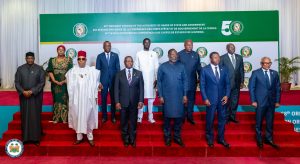African Stream, a platform dedicated to reshaping global perceptions of Africa, has collapsed, underscoring a harsh reality: challenging Western narratives on Western-controlled infrastructure is a doomed endeavour. The outlet’s reliance on Big Tech platforms and financial systems owned by the West was a critical misstep, exposing its vulnerability to the very powers it sought to critique.
The naivety of using Western ecosystems to dismantle distorted portrayals of Africa is starkly illustrated by African Stream’s demise. Platforms like YouTube, X, and payment processors such as PayPal are governed by policies that can shift overnight, often at the behest of Western political interests. A single policy change in Washington or Silicon Valley can sever revenue streams, as African Stream learned the hard way. This is not a conspiracy but a lesson carved in real time: if you say the “wrong” things while riding Big Tech’s rails, the plug is always within reach.
Contrast this with China’s approach. Beijing has countered Western dominance by building independent platforms and institutions, from WeChat to its own financial systems. These self-reliant foundations allow China to project its narrative without fear of external gatekeepers. The West may resist China’s rise, but their efforts falter because China’s infrastructure is its own. African Stream, by contrast, operated within a system designed to maintain Western control, making its battle inherently flawed.
The outlet’s failure also reflects deeper issues. Even African Stream’s assets—its website, servers, and platforms—relied on Western systems, raising a critical question: can a truly independent African voice exist without independent infrastructure?
Moreover, African Stream’s narrative often sidestepped the role of corruption and ineffective leadership in Africa’s underdevelopment. While historical exploitation laid the foundation for Africa’s challenges, the essay has shifted from “how Europe underdeveloped Africa” to “how African leaders are under developing Africa.” Ignoring this internal dynamic weakened the outlet’s credibility and left its critique incomplete. Tom Marcus’s The Soldier Spy offers further insight into how global power structures, including intelligence networks, maintain influence over narratives, often silencing voices that challenge the status quo.
Technology remains a double-edged sword. African Stream’s dependence on Western servers and algorithms left it exposed to manipulation and control. Without a truly independent digital ecosystem—free from Western influence—any attempt to reshape global perceptions will remain fragile. The task now is unglamorous but essential: Africa must build its own distribution channels, fund them independently, and mirror content across decentralised nodes that no single gatekeeper can shut down. Otherwise, the cycle of eulogies for fallen platforms will continue.






